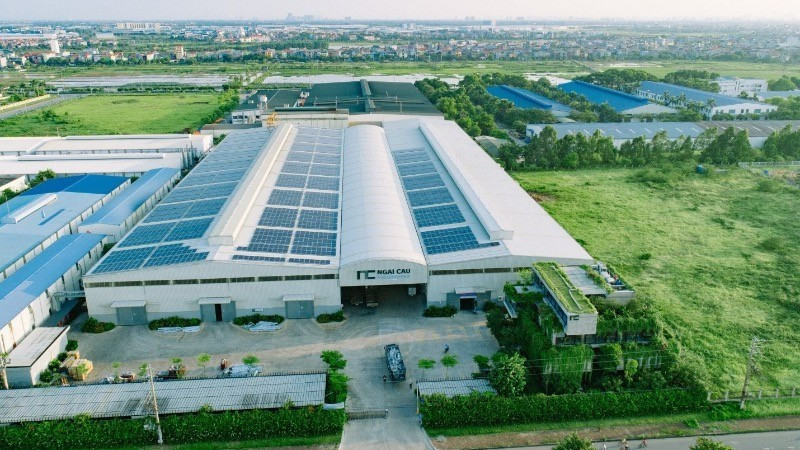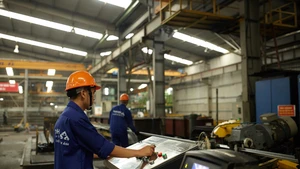High electricity bills
These days, many have complained on social media that their electricity bills have surged unreasonably in June, even doubling or tripling those in previous months, despite no significant changes in electricity use.
Pham Ngoc Chien, in Ha Noi’s Tay Mo Ward, was surprised to receive an electricity bill of 2.4 million VND (91.9 USD) for June, up 700,000 VND compared to the previous month, while his son was away from home during the summer break.
Amid reports of surging electricity bills from consumers in Ha Noi and northern provinces, the power utility EVN attributed the increases to hot weather, which drove the demand for household electricity. High temperatures also affected cooling appliances, making them use more energy.
Furthermore, this is the summer break, when students spend most of their time at home, making power demand higher than normal. The 4.8% hike in electricity prices in May also increased the electricity bills in June.
According to energy experts, when there is a large difference between interior and outside temperatures, cooling appliances will have to work at a higher power to maintain their performance, resulting in a surge in power consumption. For air conditioners, a 1C decrease can increase power consumption by 1.5-2%, while irregular maintenance or use of old, less efficient devices also consume more power.
In Ha Noi, power consumption reached an average of 90 million kWh per day in June, up 12% from the same month last year, with the peak of 110.9 million kWh recorded on June 2.
Enhancing awareness of saving electricity
According to an estimate by EVN, the amount of power saved in 2024 reached 6.506 billion kWh, equivalent to 2.46% of total commercial electricity output.
Hoang Viet Dung, Deputy head of Energy Efficiency and Green Transition at the Ministry of Industry and Trade (MOIT), said that Viet Nam aims to save at least 2% of commercial electricity output each year.
To realise the above target, the MOIT has focused on two major groups of energy users: industrial and household. Industrial users are provided with technical and financial assistance to invest in new energy-saving technologies, while households are encouraged to change their electricity use habits with a priority for energy-efficient devices.
The economical and efficient use of energy has gradually become a habit among individuals and enterprises. Besides communicating and encouraging the change in electricity use habits or the adoption of new technologies, electricity authorities are also encouraging households and business facilities to consider installing rooftop solar panels. This measure not only reduces household electricity costs, but also contributes to realising the goal of renewable energy and net zero emissions by 2050.
Developing clean and renewable energy and promoting economical and efficient use of energy are important and urgent pillars as Viet Nam and the world are shifting rapidly to green growth and sustainable development models.
According to Nguyen Thi Lam Giang, Director of the Agency for Innovation, Green Transition and Industry Promotion, developing clean and renewable energy and promoting economical and efficient use of energy are important and urgent pillars as Viet Nam and the world are shifting rapidly to green growth and sustainable development models.
Economical and efficient energy use requires the joint efforts of the whole society, through concrete and voluntary actions by every citizen, household and enterprise. This not only benefits electricity users but also helps enhance the quality of power supply.
















